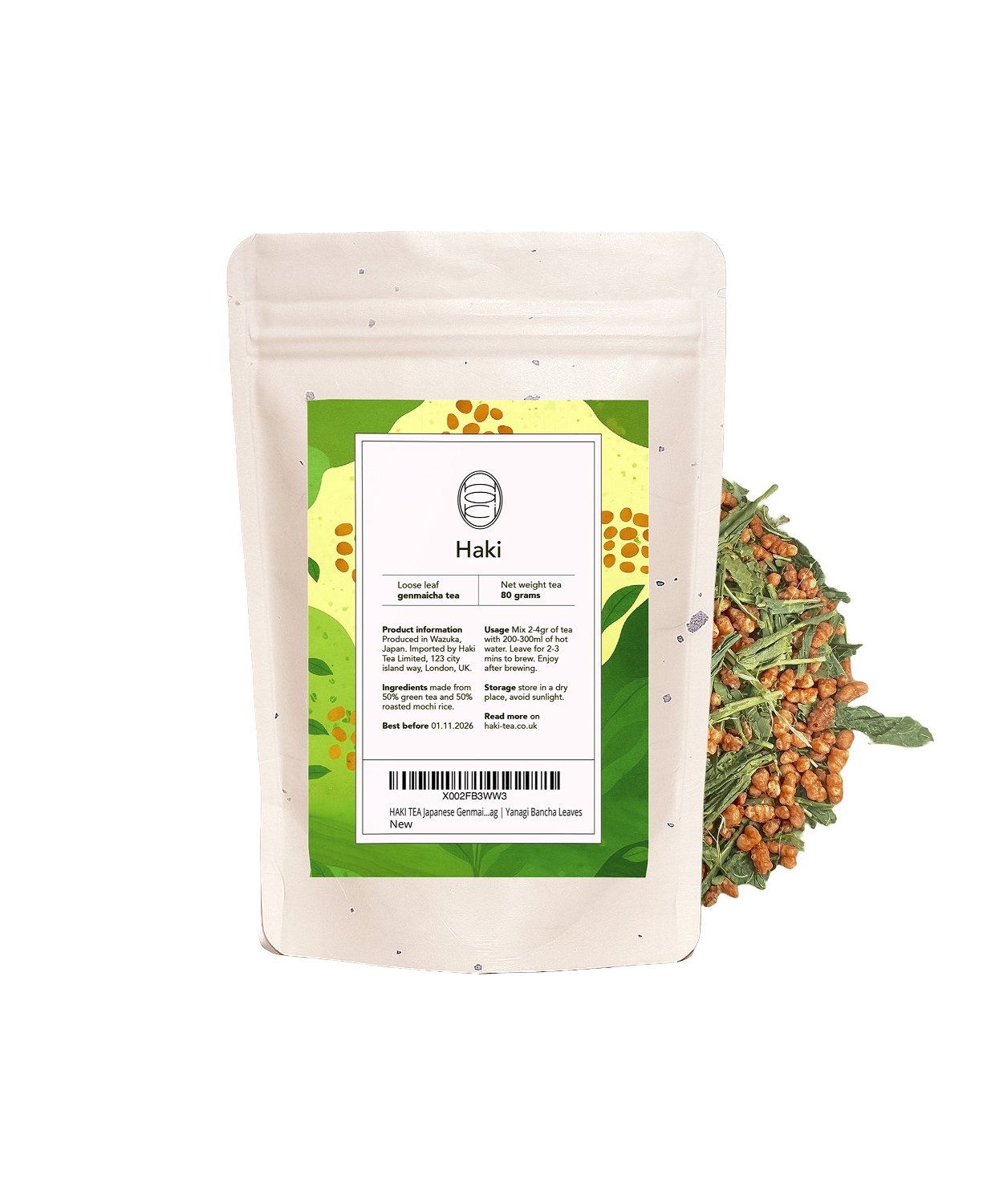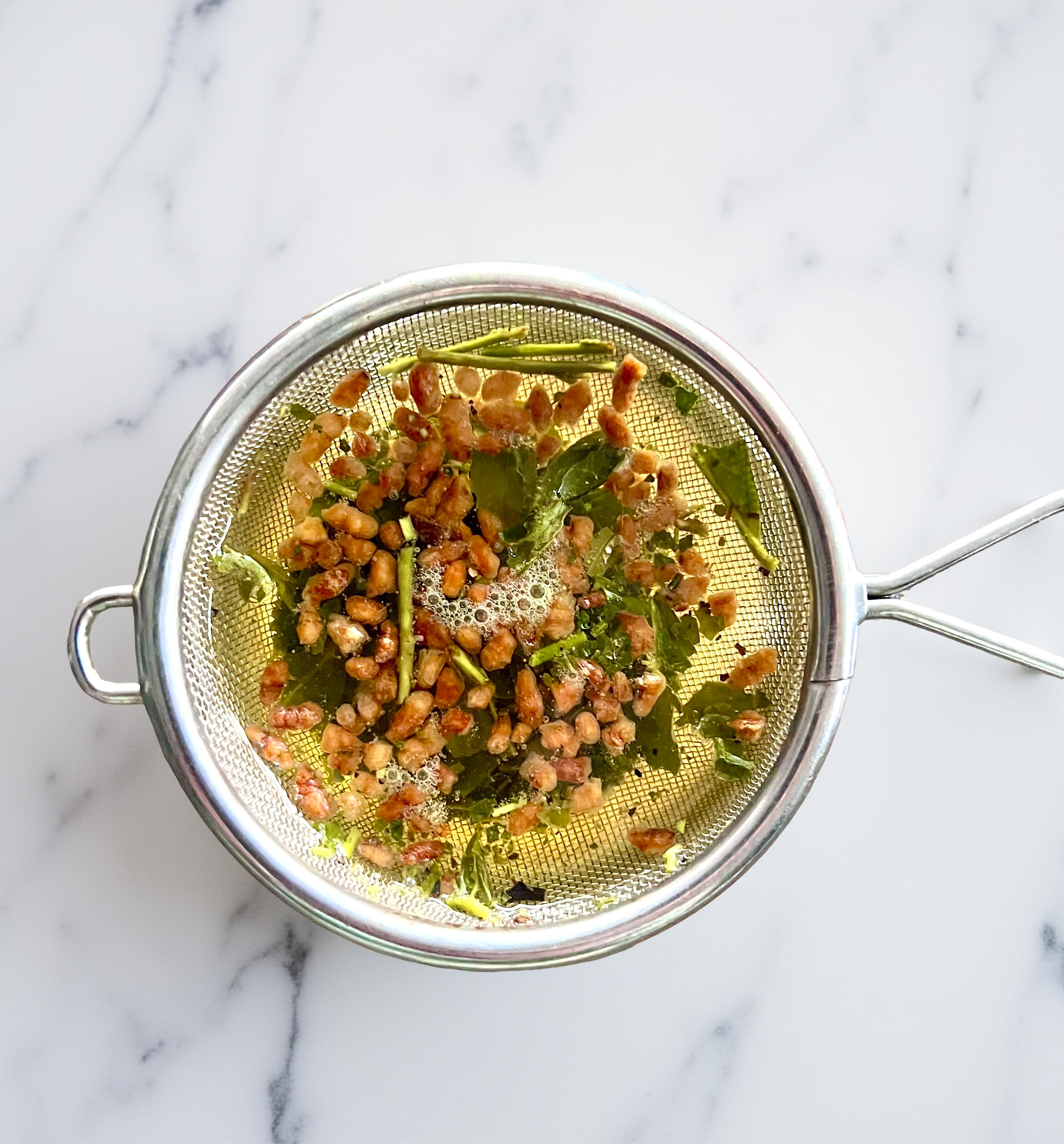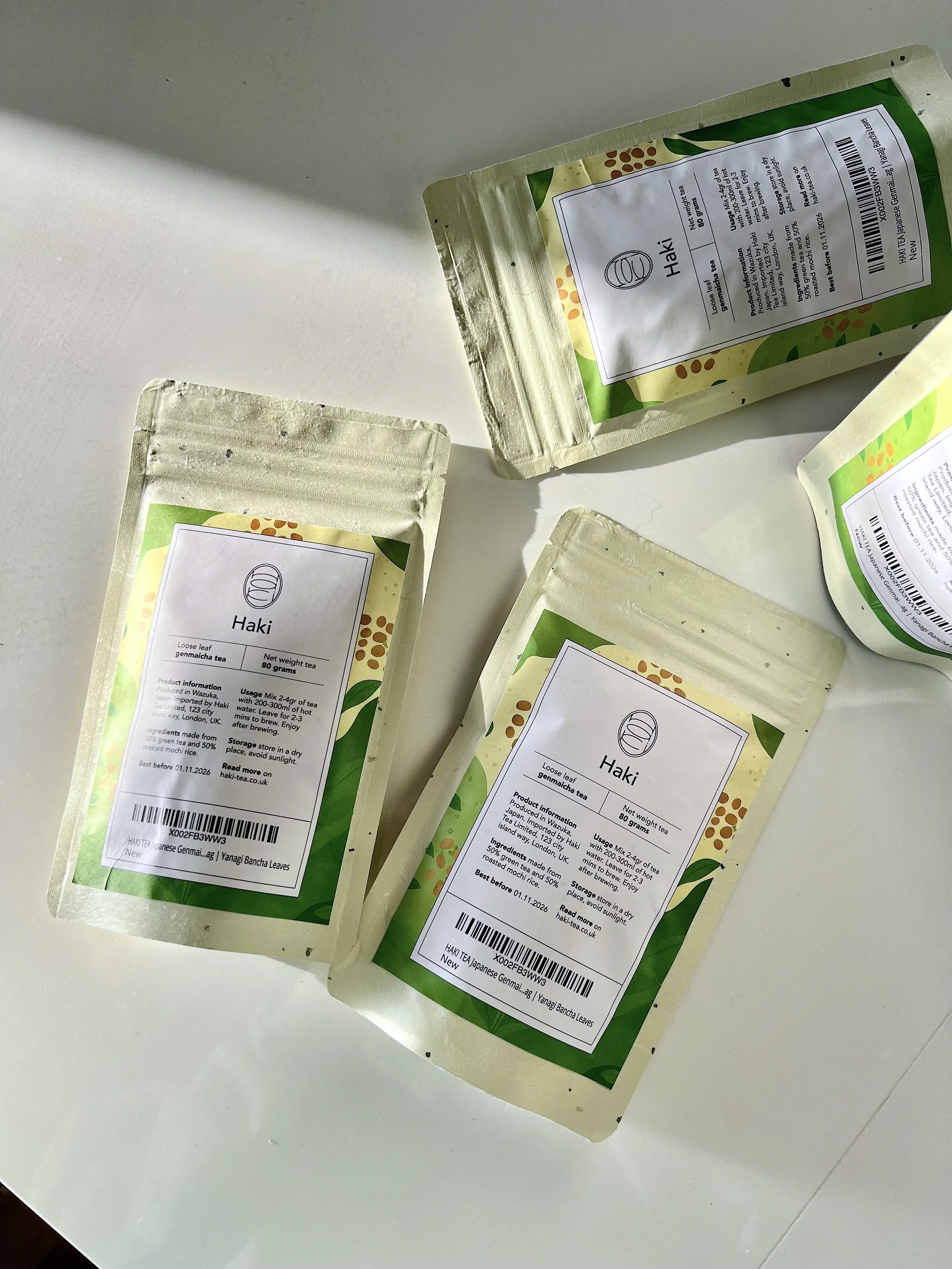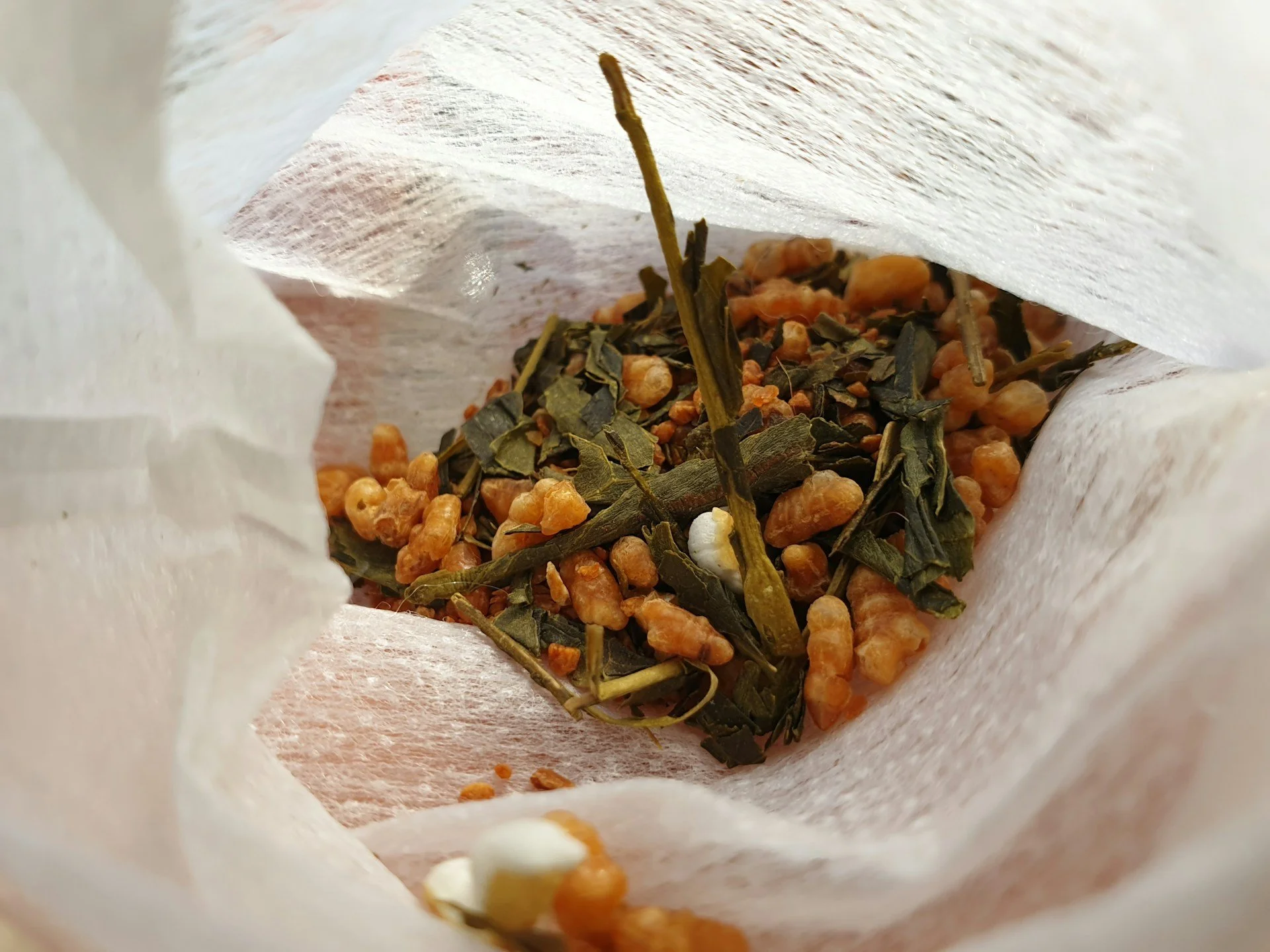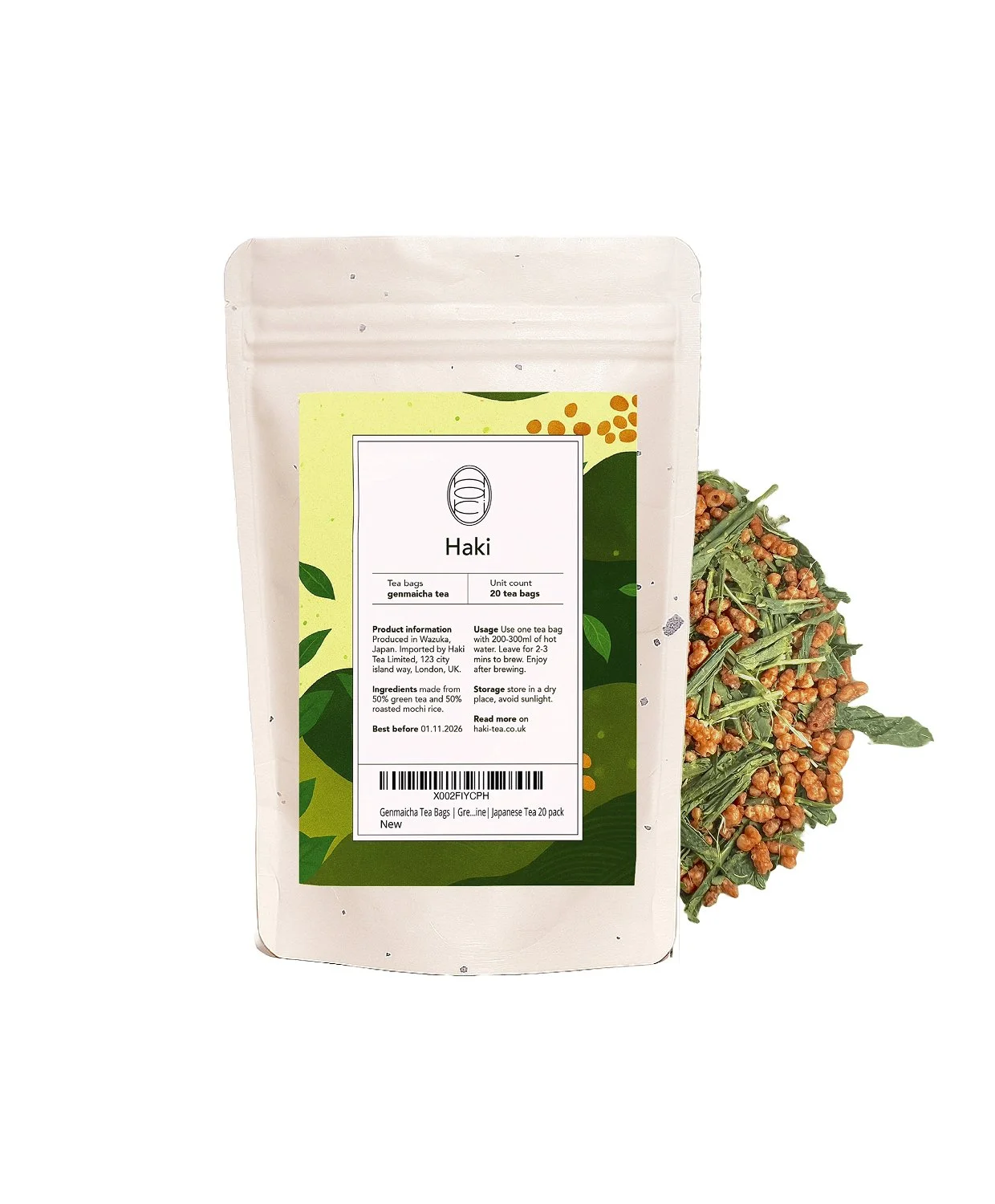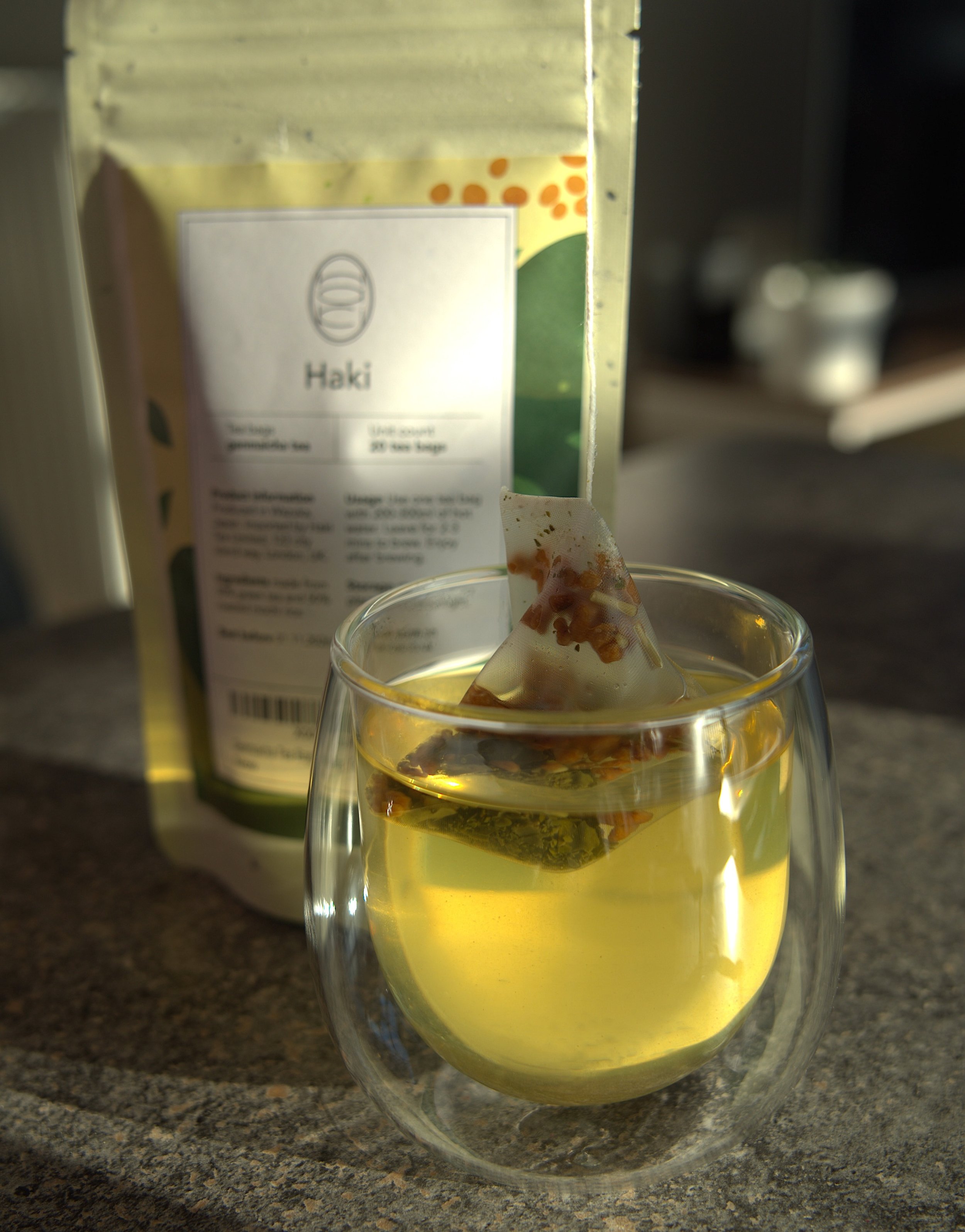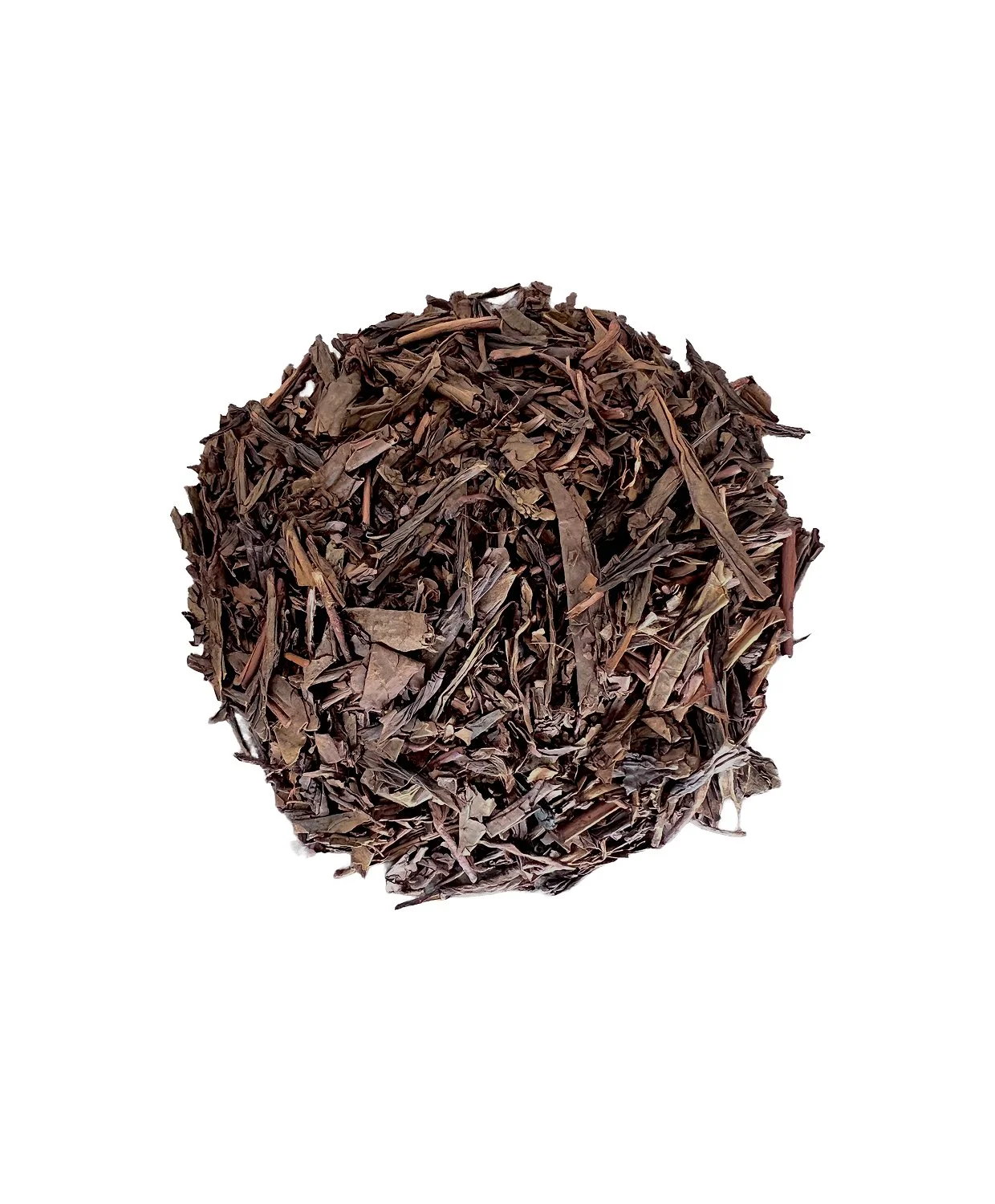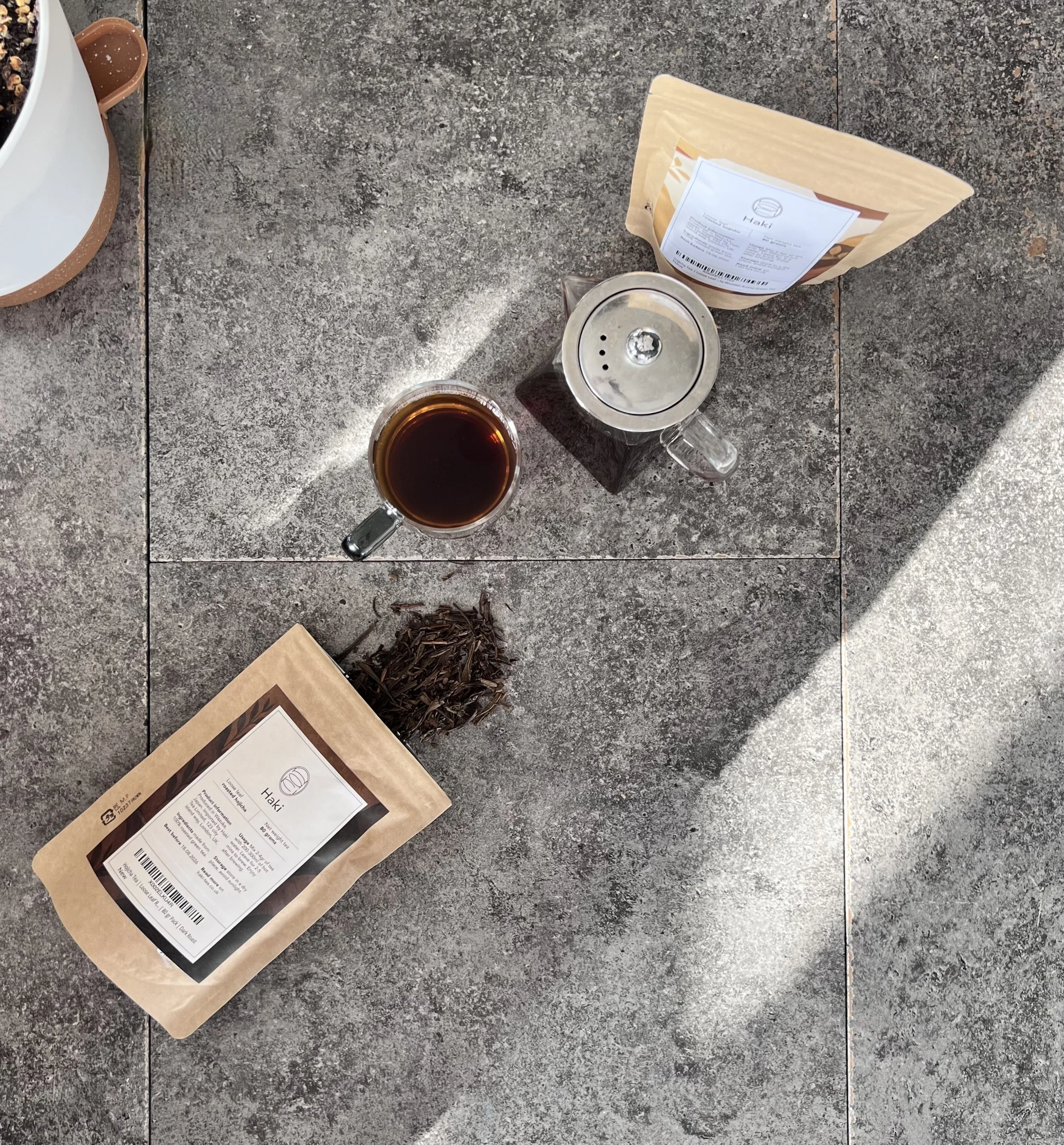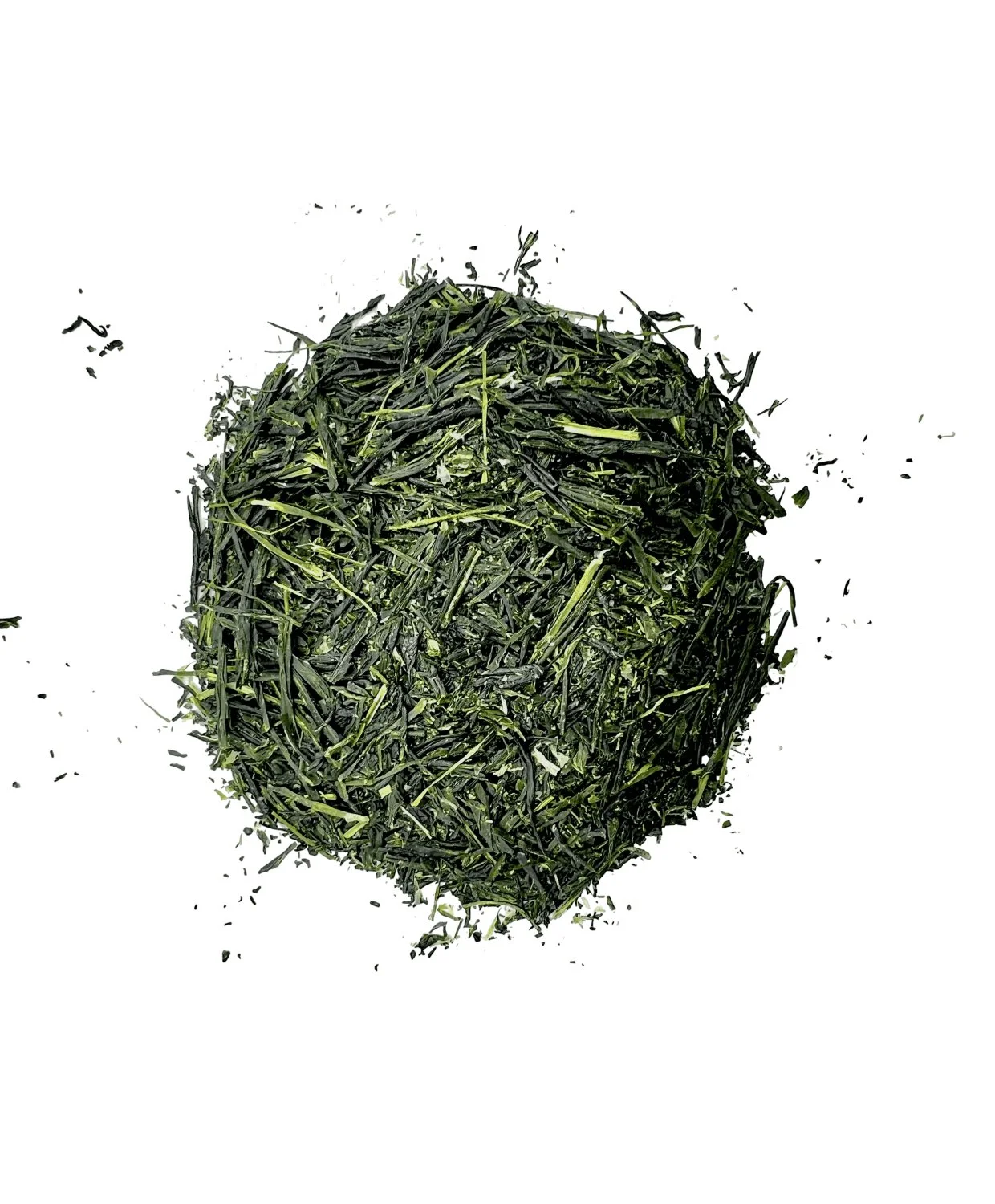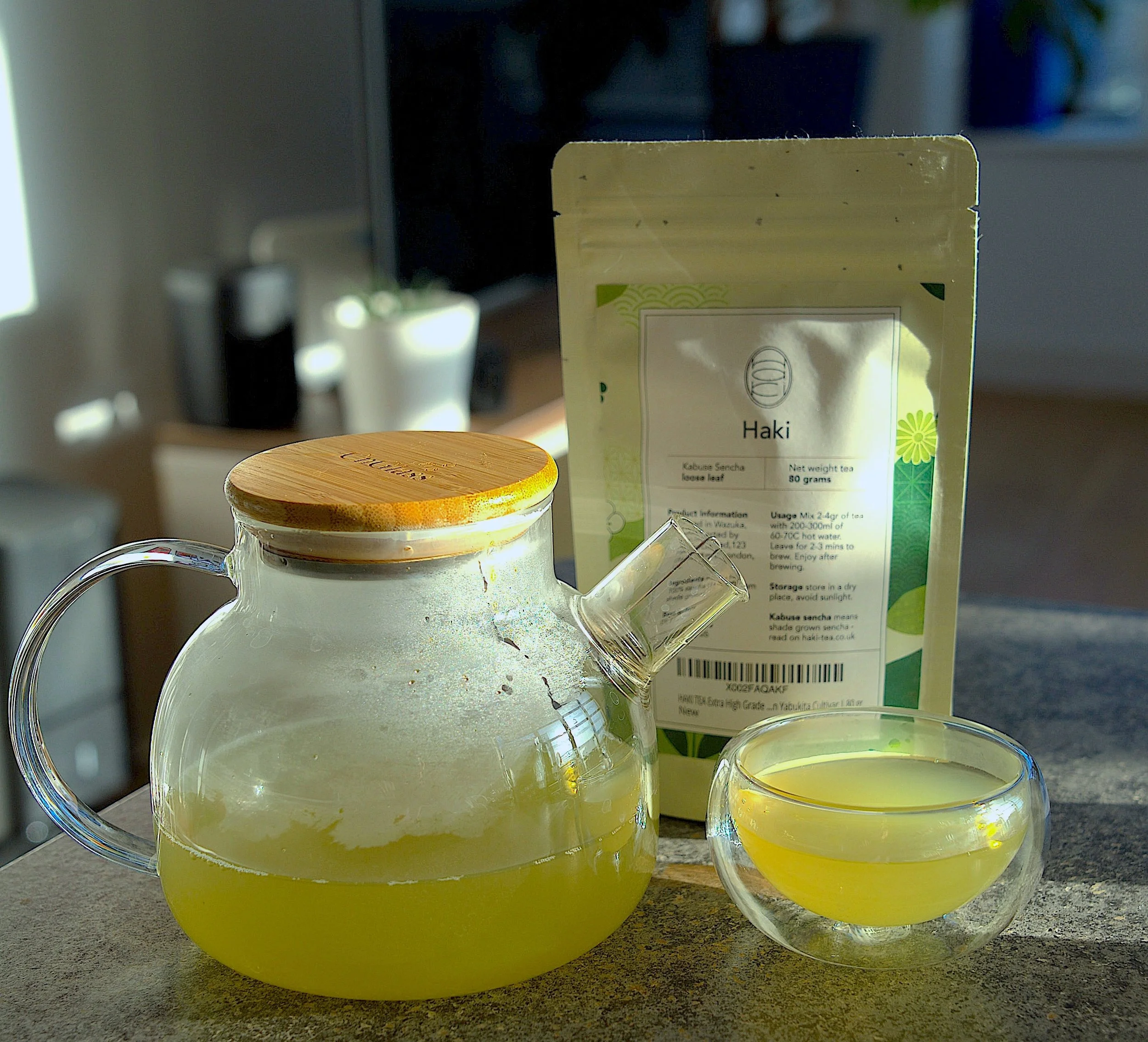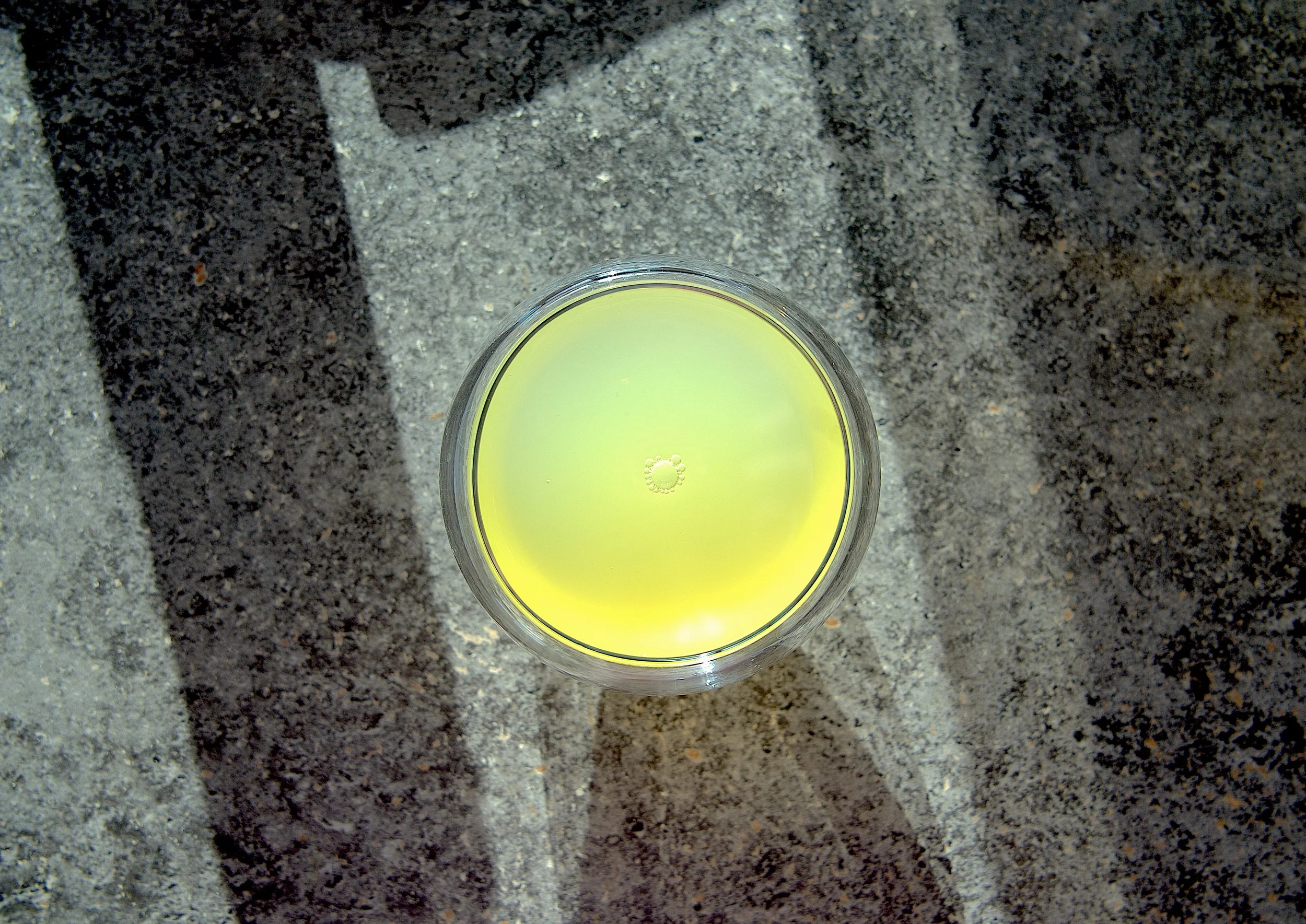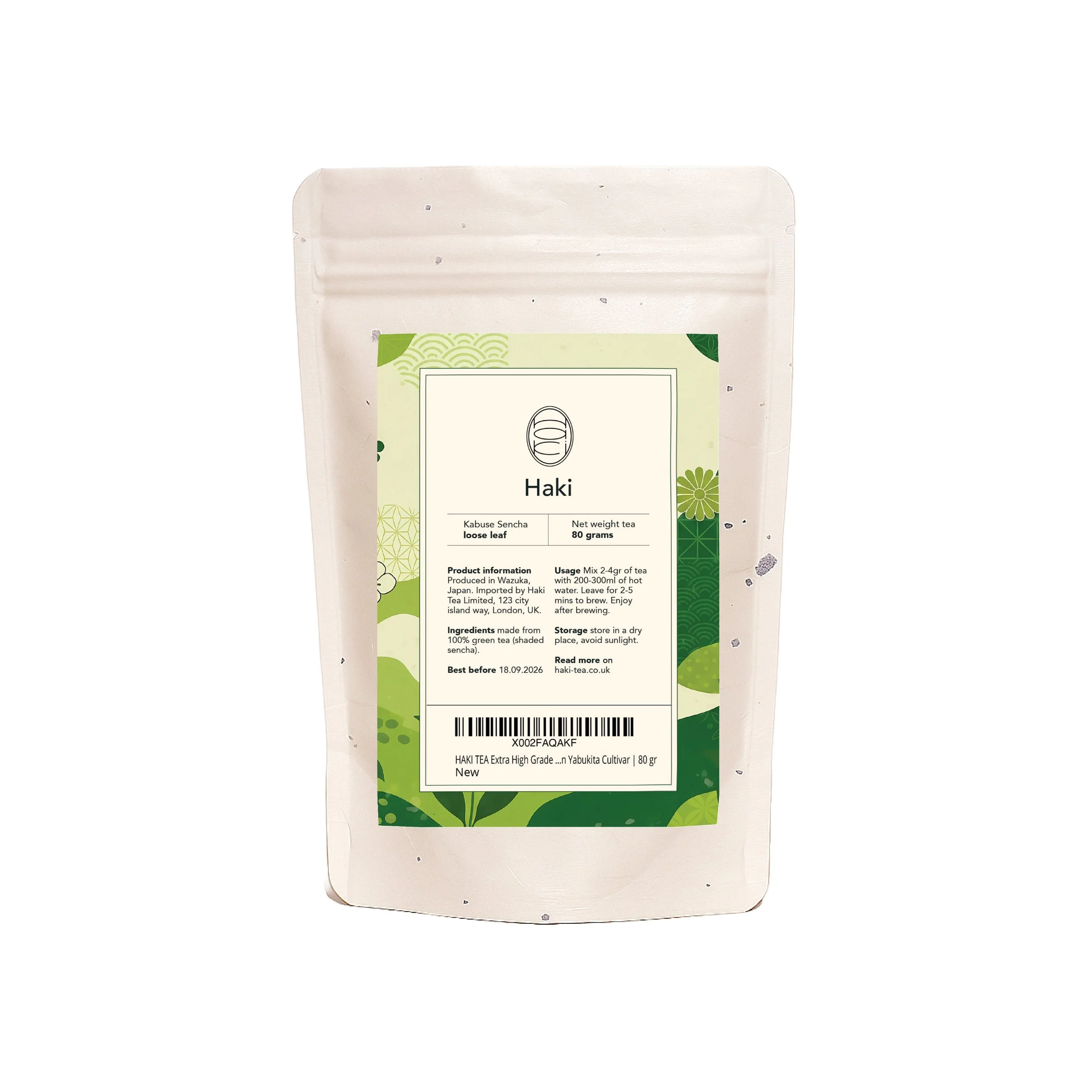How we recommend using genmaicha tea bags
3-5 genmaicha tea ⋅ 75-90°C ⋅ 200-300ml of hot (almost boiling water)
There are two ways to brew Genmaicha loose leaf, depending on the kind of cup you’re after. For a smooth, balanced taste with gentle roasted notes, use water around 70°C and let it steep for a couple of minutes. If you prefer a stronger, heartier flavour that really highlights the nutty aroma of the roasted rice, go for almost boiling water instead — it’ll give you a bolder, more comforting brew. But generally we recommend 4-5 grams for a stronger flavour.
Our Tea
| Taste | Buttery nutty flavour (similar to pine nuts) |
|---|---|
| Body | Medium |
| Texture | Rounded |
| Length | Medium |
| Harvest | June |
| Tea Cultivar | Mixed |
| Origin | Wazuka, Kyoto |
| Cultivation | Unshaded |
| Processing | Steamed, Rolled, Dried, Mixed with Roasted Rice |
What does genmaicha taste like?
It has a pleasant nutty and buttery-like aroma. The tea is fragrant thanks in part to the addition of roasted rice, while the flavour leans more towards that of nuts — particularly pine nuts. Smooth, toasty, and comforting, it’s the kind of tea that feels like a warm blanket on a cool day.
What is genmaicha tea good for?
Genmaicha is known for its calming and soothing effect. The tea itself is gentle and has a soft aroma. It’s also known for being easy on the stomach and having an array of other useful benefits such as:
- Smooth energy, no crash: A light caffeine lift that keeps you alert without the jitters.
- Rich in antioxidants: Green tea catechins help protect your body and support overall wellness.
- Kind on digestion: The roasted rice makes it mellow and soothing, especially after meals.
- Promotes relaxation: Contains L-theanine, which helps calm the mind and reduce stress.
- May help balance blood sugar: Green tea compounds can support steady energy and glucose levels.
- Light and guilt-free: Naturally low in calories, so you can sip away without worry.
Genmaicha Loose Leaf FAQs
-
Not really. On average, Genmaicha contains about 15-25 mg of caffeine per 200 ml serving. For comparison coffee has about 80-90 per 200 ml cup.
-
Yes, but mainly for enjoyment and gentle daily support. Genmaicha contains antioxidants like catechins (though less than sencha or matcha) and L-theanine, which can promote relaxation and calm focus.
Its low bitterness and soothing taste make it easy to drink regularly. Its low caffeine makes it gentle for people with stomach issues. And generally as a green tea it has lots of benefits.
Learn more about genmaicha tea benefits here.
-
Genmaicha is a Japanese green tea blended with roasted brown rice and is associated with several potential health benefits, largely similar to other green teas but often with gentler caffeine effects.
Main potential benefits
Rich in antioxidants
Genmaicha provides catechins such as EGCG, which help counter oxidative stress and may support heart health and general disease prevention. These antioxidants are also linked with healthier skin and potential anti‑aging effects.
Supports heart and metabolic health
Regular intake of green tea like genmaicha has been associated with lower LDL (“bad”) cholesterol, improved blood flow, and potentially reduced blood pressure and cardiovascular risk. Some sources also suggest it may help with blood sugar balance and weight management through mild metabolism support.
Calming yet mildly energizing
Genmaicha contains L‑theanine and GABA, which can promote relaxation, reduce stress and anxiety, and support focus, while its modest caffeine content offers gentle alertness compared with coffee or stronger green teas.
Digestive and gut support
The roasted brown rice contributes some dietary fiber, and the tea’s anti‑inflammatory properties are suggested to aid digestion, reduce bloating, and support general gut comfort.
Micronutrients and oral health
Genmaicha can provide small amounts of B vitamins and minerals such as magnesium, manganese, and selenium, which support energy metabolism, thyroid function, and immune health. Its polyphenols and antibacterial effects may also help reduce oral bacteria linked to cavities, gum disease, and bad breath.

